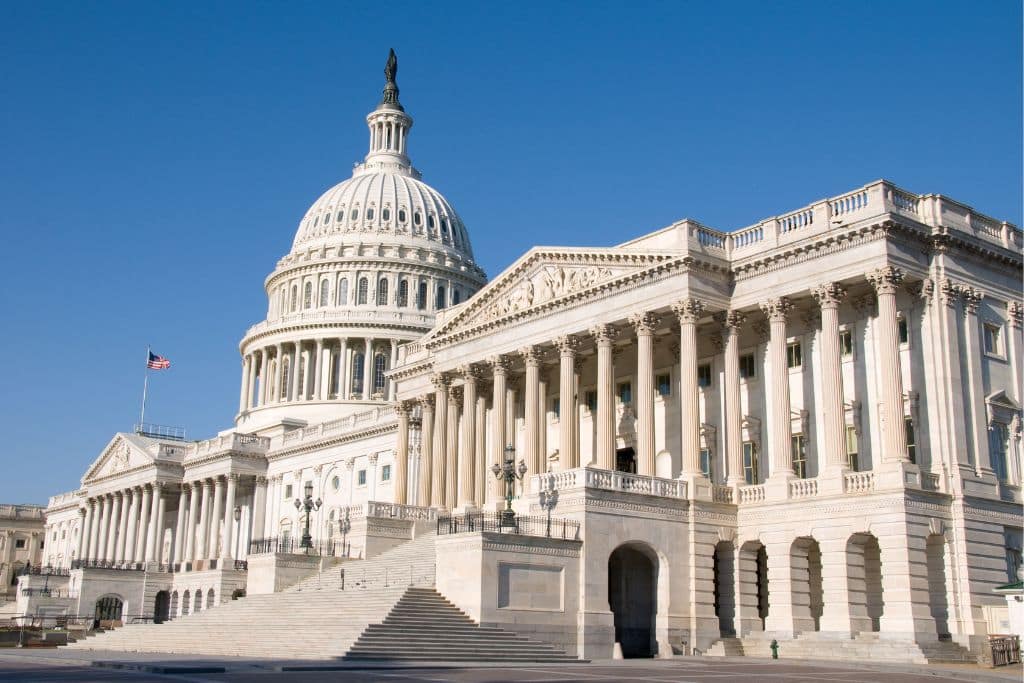The newly approved Inflation Reduction Act is a major victory for President Biden ahead of November’s midterms. It is the largest climate investment ever made in the US.
—
After an overnight marathon of votes on amendments, the US Senate passed a landmark tax, health-care, and climate bill on Sunday, with 51 Democrats in favour and 50 Republicans against.
The Inflation Reduction Act (IRA) – the surprise deal that Senator Majority Leader Chuck Schumer and Democrat Senator Joe Manchin struck last week – is projected to help reduce greenhouse gas emissions in the country to about 42% below their all-time high by the end of the decade – equivalent to roughly 3.9 billion tons.
Nearing a final vote, Schumer said that the bill would “endure as one of the defining legislative feats of the 21st century.” The US$739 billion is by far the largest climate investment ever made in the country and, if enacted, it would bring the US much closer to achieving its net zero emissions goal by 2050.
“To the tens of millions of young Americans who have spent years marching, rallying, demanding that Congress act on climate change, this bill is for you,” Schumer added.
24% of emissions reductions will come from the power sector, 19% from transportation, and 9% from other industries. The US will ramp up investments in wind and solar power and electric vehicle tax credits. It also plans to increase carbon capture and storage technologies 13-fold.
Several independent studies estimate that the IRA would also come with major health benefits. If implemented, the bill could avoid nearly 4,000 deaths, up to 100,000 asthma attacks, and more than 400,000 lost work days by the end of the century.
Despite being much smaller in scope than Biden’s $6 trillion Build Back Better Act, the bill is nonetheless a landmark achievement for Democrats who will soon face midterm elections, where they have to fight to retain control of Congress.
The IRA – which will now proceed to the House where it must receive nearly every Democratic vote in order to pass – comes just days after Australia, a country similar to the US for its large extraction sector and its struggle to take on climate change – passed its own climate bill.
You might also like: India and Australia Approve New Emission Reduction Targets as COP27 Approaches


















